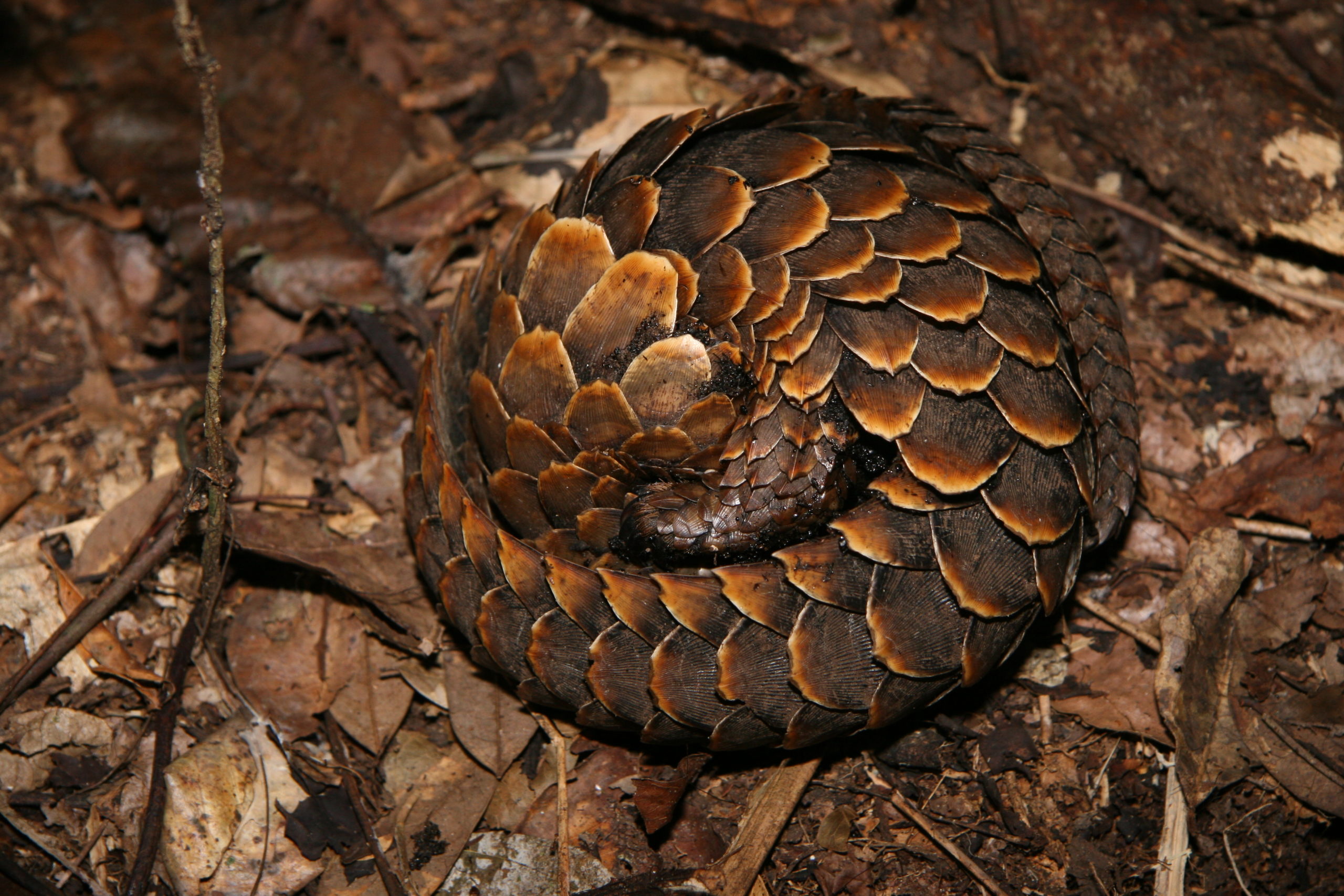On Thursday 23rd June Hong Kong authorities seized 4 tonnes of pangolin scales originating from Cameroon. The shipment- one of the largest ever seizures of African pangolin scales – is evidence of a growing intercontinental trade that poses a significant threat to the survival of African pangolins.
News of the seizure prompted the IUCN Director General, Inger Andersen, to release the following statement:
The seizure by Hong Kong authorities yesterday of a massive illegal 4 tonne shipment of African pangolin scales is symptomatic of the worrying increase in the trafficking to Asia of these iconic species.
Pangolins, or ‘scaly anteaters’, the world’s only truly scaly mammals, are under increasingly severe threat from criminals profiting by supplying demand, particularly from China and Vietnam, where their meat is considered a delicacy and their scales are an important ingredient in traditional medicines.
Increasing consumer demand has resulted in an estimated one million pangolins being snatched from the wild and trafficked in the past decade – equivalent to one pangolin every five minutes, according to the International Union for Conservation of Nature (IUCN) Species Survival Commission (SSC) Pangolin Specialist Group.
Of growing concern is the emergence of African pangolins being trafficked to Asian markets following steep declines in populations of Asiatic pangolins, especially in China and Southeast Asia.
The latest seizure of 4 tonnes of pangolin scales, in a shipment originating from Cameroon, is estimated to involve between 1,100 and 6,600 African pangolins, which inhabit sub-Saharan Africa and range in size from 2 to 35kg. It is a tribute to the work of the Hong Kong authorities that they were able to identify and stop this shipment.
The haul is estimated to be worth HK$9.8 million (US$1.25 million) on the black market and represents one of the largest ever seizures of African pangolin scales. The amount of illicit profit that can be made from this trade helps explain its alarming growth and is deeply concerning for the future of these species.
IUCN’s SSC Pangolin Specialist Group estimates that since 2012 more than 20,000 kg of scales from African pangolins bound for Asia have been seized either in Africa, Asia or Europe, involving somewhere between 5,000 and 30,000 animals. Sadly, these figures are just the tip of the iceberg.
Little is known about the population status of the four African pangolin species in quantitative terms, but each is classified as threatened with extinction. Their nocturnal and elusive nature makes them difficult to survey and, until recently, they have been largely overlooked by the conservation movement.
It would be an absolute tragedy if we lost pangolins to wildlife trafficking. We urgently need to ensure that we put in place strategies that address the complex drivers of this illegal trade, including scaling up enforcement efforts, improving legislation where necessary, protecting and monitoring strongholds for these species, and involving local communities in these solutions.
For a species which give birth to just one young at a time, the illegal wildlife trade now represents a severe and increasing threat to the survival of pangolins globally.
The IUCN SSC Pangolin Specialist Group published the first ever global conservation action plan for pangolins in 2014, entitled ‘Scaling Up Pangolin Conservation’, but given the growing threats facing the species it is in the process of updating this strategy. It is now calling on Range State governments to assist in its development, endorse its recommendations and commit to concrete action to secure the conservation of pangolins globally.



